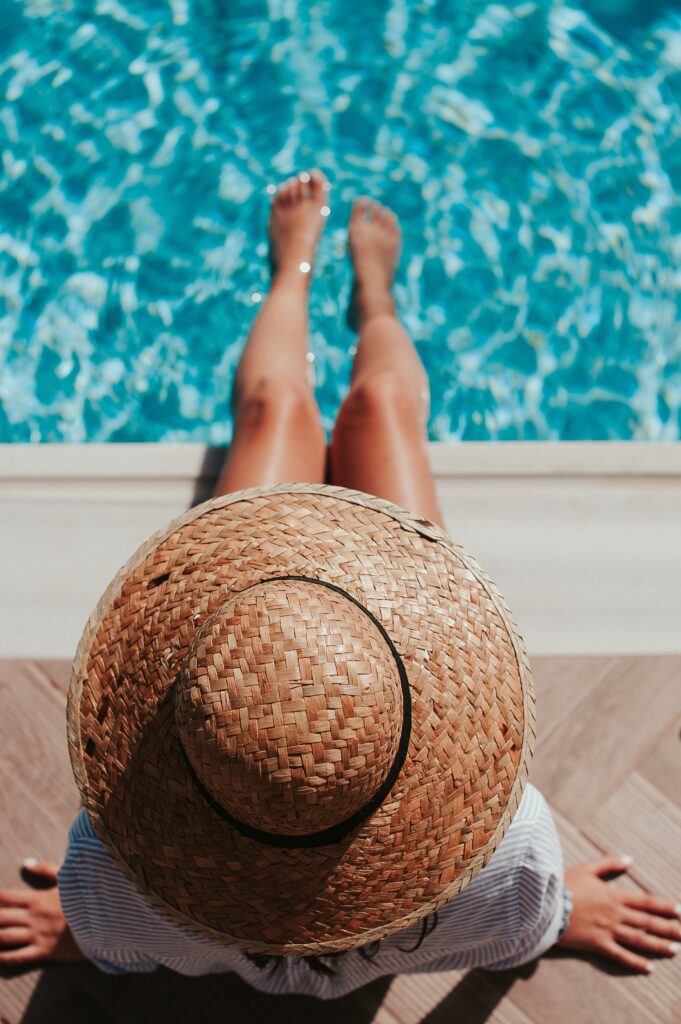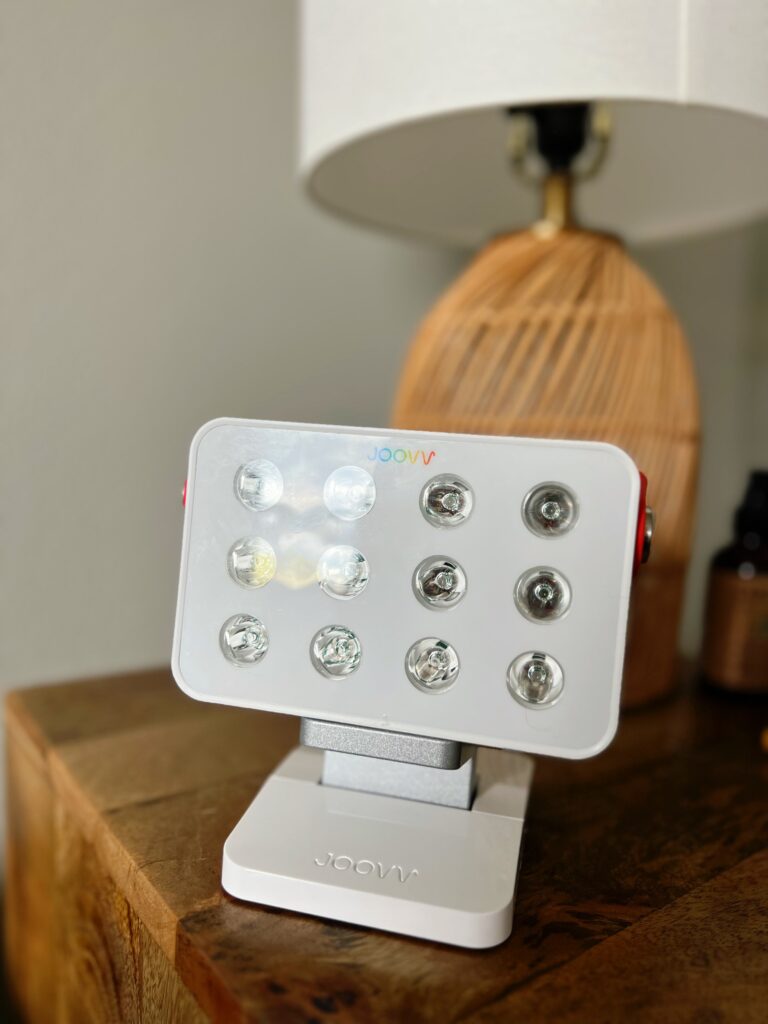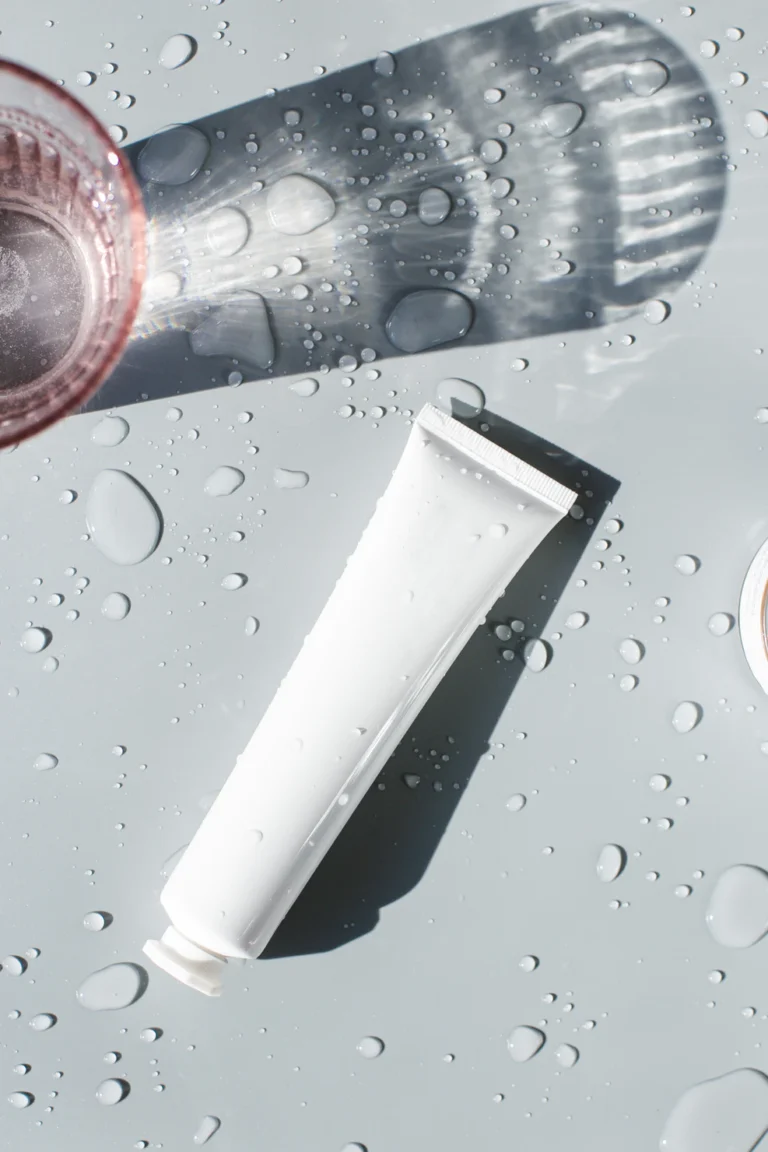Cortisol and hormonal balance are talked about so frequently on social media these days, which makes me so very happy. Every time I chat about how i’ve reduced my cortisol levels and balanced my hormones on Instagram, I get an influx of messages from gals saying they too, are going through this. They’re curious as to what steps i’ve taken to support my body, manage my cortisol, and get my hormones back in check. So I figured it was time to do an in-depth post in some of the most important changes/additions i’ve made to my lifestyle and nutrition.

How i knew something was off
To make a long story short, I had felt like crap for a LONG, long time. I think it’s so important to understand that even if you’re eating the most balanced, whole-food diet, exercising daily, doing all the wellness things – things can still be off, especially if you don’t have your mind right. After battling an eating disorder for so long, dealing with chronic stress from that and Thomas’s cancer treatment, on top of day to day stressors, it took a huge toll on my body.
Symptoms:
-No energy
-Hair loss
-Always cold & tired
-No menstrual cycle
-Extremely dry skin
-Couldn’t sleep at night
-GRUMPY af
-Chronic bloating/digestive issues
These were symptoms I had been dealing with for years. Something shifted in me one day and I really wanted to get to the bottom of it. I wanted to be healthy from the inside out – and TRULY healthy. So, I decided to get a DUTCH test done. DUTCh tests give you in-depth information on your sex hormones, pattern of free cortisol, & the total and distribution of cortisol metabolites. In addition, it also gives you insight into nutritional deficiencies, oxidative stress, gut dysbiosis, melatonin, neuroinflammation & more. I couldn’t recommend this test more. If you need help finding a provider that you can order it through/go over it with, I can recommend you to my amazing friend that I work with!
The test results
Without going too in-depth, I had chronically elevated cortisol levels, which can cause a multitude of issues (including the ones I listed above) and also causes imbalances in sex hormones (low progesterone, etc). So it makes sense why I was experiencing all of these symptoms. I decided it was time to make changes to hopefully improve these levels and get things back in balance.

Changes I made to balance my hormones and reduce my cortisol
There were 4 main areas in my life that needed work – Lifestyle & exercise, stress management & sleep, fun & connection, and diet.
1. Lifestyle & herbs:
-Quit coffee: For the time being. I’ll probably have coffee as a treat every now and again once things have balanced out for an extensive period. However, caffeine can increase cortisol levels, especially if having it on an empty stomach. Instead, I now have decaf, matcha, and fun sips like maca & cacao lattes. Adding herbs like Maca powder and ashwagandha are incredible for hormone and stress support. I would have them daily in a smoothie.
-No more fasted workouts: I used to wake up and jump into a workout. Often times this was a HIIT workout. Don’t get me wrong, working out is incredible and so important for overall health. It is considered a “positive” stress on the body. However, if you come from over-exercising/exercise addition, have a rocky relationship with exercise, or you were an athlete, your body may already be stuck in fight-or-flight. So, this added stress, regardless of it being “healthy”, is too much for the body to handle. Thus, increasing cortisol.
-Having breakfast within an hour of waking: Adding onto the point above, I ALWAYS eat before a workout and try and eat within an hour of waking. This fuels your body and helps it feel safe.
2. Stress management & sleep
-Red light: My number one wellness tool. It’s not just some flashy device, it’s really made the world of difference for us. I have a full post on the benefits of red light therapy here. Red light heals your cells on a cellular level – from the inside out. It’s proven to be beneficial for skin health, mental health, immune function, improves quality of sleep, and aids in recovery/injury. Thomas used it on his knee after having meniscus surgery and swears it decreased his recovery time! However, it’s important to note that not all red light devices are created equal. I highly recommend doing your research (or reading the post I linked above). Joov is the only one I trust. It’s a medical grade device that you can have at home. They make mini ones and full-body ones. I have the Go device and love it! You can use code DANI for a discount.
-Prioritizing sleep: I struggled with insomnia for years. I’d get maybe 4-5 hours of sleep, wake up, work out, skip breakfast, and live off coffee. No wonder my body was crying for help. Using red light nightly has helped immensley, as well a creating a nighttime routine WITHOUT MY PHONE. This really helps create an environment that calms and relaxes my mind. I started reading in bed as well and that has really helped.
-Taking more time off: I used to work 24/7 with no time for fun. I had to really work on creating a schedule for myself that included time for simply relaxing. Making time for fun was CRUCIAL in healing my nervous system and helping my body feel safe.
3. Fun & connection
-More time with friends and family: I went a long time isolating myself. Loneliness is an eating disorders best friend. I’d skip hangouts with friends to get a workout in or simply, just didn’t have the energy to do anything. I started saying yes more, regardless of the weather or the activity, and started making connection more of a priority. There’s studies that have proven connection and deep relationships with loved ones can extend life expectancy. It’s wild!
-Finding my hobbies again: I lost my love for things that once caused a spark for me. I didn’t allow myself to be bored so I didn’t have to worry about what to do in that “free” time. There never was any. I just worked. I almost felt like I was having an identity crisis when I started having free time in my calendar and felt like I didn’t know what I liked to do for fun anymore. Finding hobbies that fill your cup is so, so important in overall mental wellbeing. Whether it’s a sport, reading, doing something artsy or creative, try new things!
-Got off my phone & focused on being present: I am as guilty as anyone else. Scrolling my phone all day, especially with part of my job being social media. It can be inevitable. Being present and having no-phone time has done WONDERS for my mental well-being, anxiety, and stress. The comparison trap can get the best of anyone. It’s so important to disconnect and reconnect to the real world.

4. Diet
I feel like nutrition and diet advice is very saturated on social media. It’s overwhelming and disheartening. Nothing seems to work, this person is preaching this while another is preaching the opposite. The biggest advice I have here is to honor and listen to what feels best for YOU and YOUR body. I spent years on a low-carb diet that essentially ended up causing tons of hormonal issues, adrenal fatigue, and elevated cortisol.
After all of my testing and working with professionals, some trial and error, and working towards healing, here are some important diet tips that worked for me.
Carbohydrates: I avoided carbs like the plague for so many years (I wouldn’t even eat a whole banana), not realizing the detrimental impact this was having on my body. Not only are carbs crucial for providing our bodies with energy, but they’re essential for brain health and particularly important for balanced hormones. I started including a carbohydrate source at every meal – potatoes (red, white, sweet, etc), white rice, organic gluten-free oats, starchy veggies, and lots of fruit!
Healthy fats: I was never afraid of fats, but I don’t think I was consuming enough for my body. I started cooking my veggies in olive oil, which is actually really important as it helps your body better absorb the nutrients from them. I included fresh caught salmon for the healthy omega-3’s and added more eggs into my diet. This was tough for me, being mostly plant-based for a few years, but i’ve never felt better.
Don’t stress your food! With adrenal fatigue or elevated cortisol, the last thing you want to do is stress yourself out. Your thoughts are powerful. If you sit down to have a meal and you’re stressing about the ingredients, calories, etc., it’s actually been proven that it hinders digestion, nutrient absorption, etc. Take a few deep breaths before your meal, chew your food properly, take a solid 20 minutes to eat the entire thing (eat slow!), and enjoy it. Think about how each food is benefiting your body.

If you have any questions at all, feel free to comment them below and i’d be more than happy to help! x
Somes recipes to try
Low carb peanut butter cup nice cream






I love this. This is exactly what happened to me! I thought I was broken, but really I was just being too perfectionistic about diet and exercise. Once I started intentionally reducing exercise and increasing food intake, my period came back within a month. Thanks for sharing your experience!!!
Hi Rachel! omg thank you for sharing this! That’s incredible about getting your cycle back! It’s nuts how sensitive women’s hormones can be, especially to stress. So happy you were able to do that!!
I love your recipes and content! So many of us (ladies especially) are dealing with these issues. Thank you!
Hi Natalie! Thank you so muchhhh, this means so much to me!! Appreciate you being here!!